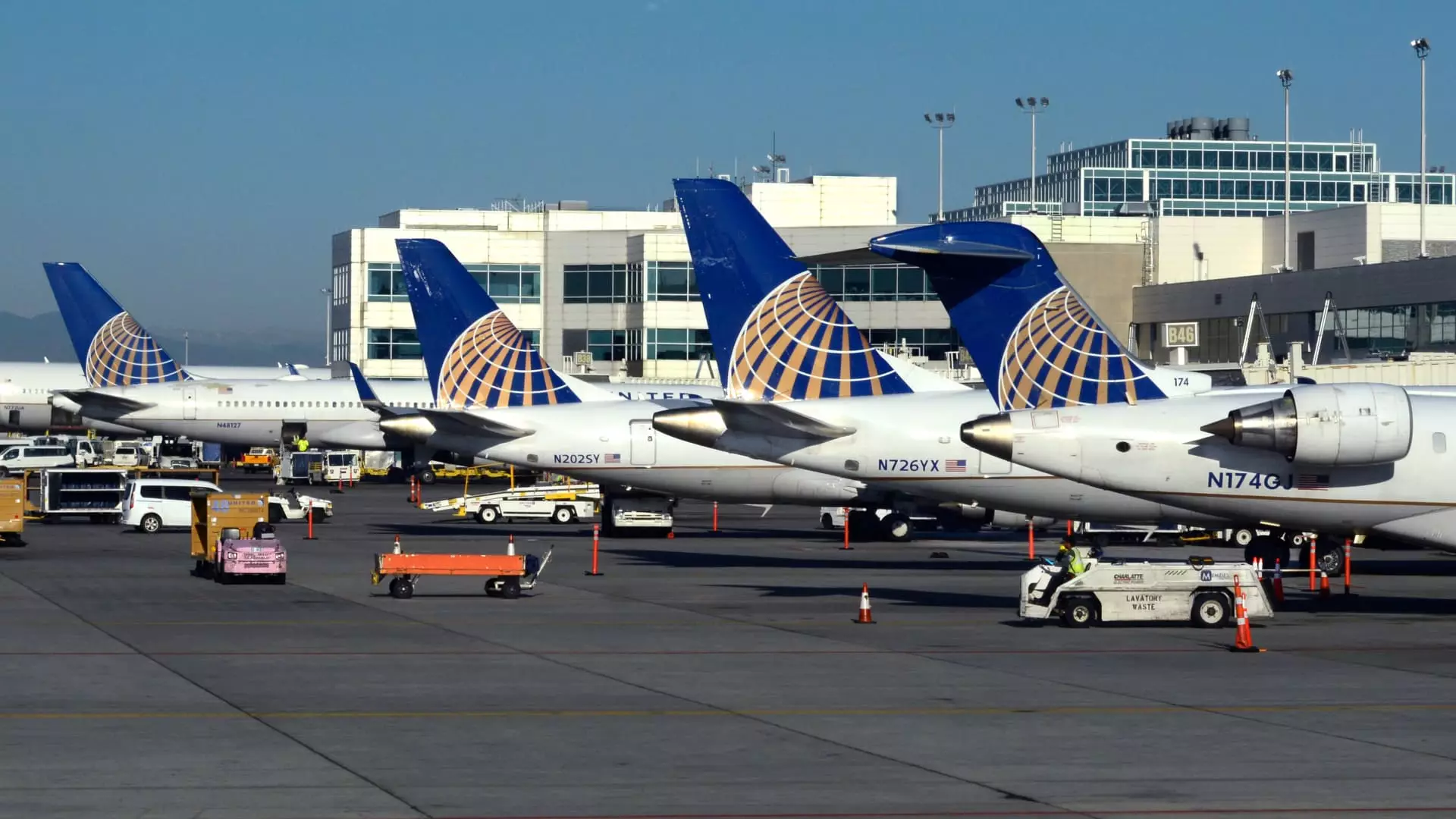In an audacious move that may shake the travel sector, United Airlines has decided to hike fees associated with its annual airport lounge memberships and co-branded credit cards. Such a gamble demonstrates not only an intense confidence in the demand for luxury travel amenities but also sheds light on how airlines are wrestling with profitable revenue streams in an increasingly crowded market. Richard Nunn, the head of United’s MileagePlus program, noted that although fees are increasing, the new advantages offered will supposedly outweigh these costs. Yet, one can’t help but question whether this really serves the average consumer or merely throws richer perks at the affluent elite.
The Irony of Loyalty in a Time of Restriction
United’s choice to enhance the perks associated with their credit cards and memberships comes at a time when the concept of “loyalty” is becoming tangled and convoluted. Not only are the new features like rideshare credits and discounts appearing creative at first glance, but they also risk alienating everyday travelers—those who cannot meet the demands or expense of these frequent-flyer programs. By increasing fees while simultaneously tightening entry into often congested airport lounges, the airline is inadvertently saying that loyalty only pays off for those wealthy enough to sustain these financial commitments. This paradox of loyalty feels more like a club for the privileged than an invitation for every traveler to enjoy the skies.
Market Reactions and Future Implications
Airlines, including United, have seen an unprecedented rise in loyalty revenue, with United alone racking up over $3.49 billion last year from diverse revenue streams, a 10% increase from previous years. This financial success is attributed mostly to co-branded credit card spending and airport lounge memberships. However, this sudden influx of funds fuels a dangerous game where luxuries morph into necessities for those who may have otherwise chosen affordable travel options. Will travelers continue to invest in these premium services, or will they ultimately rebel against what feels like a diminishing return on their loyalty?
What This Means for Travelers Overall
For average consumers, the increased fees raise important questions. Are we truly gaining better services, or are we witnessing the normalization of inflated costs that will eventually lead to disenchantment with major airlines? United’s decision to augment their fee structure sends a clear signal that the travel landscape is evolving, but at what cost? As amenities that used to come complimentary are slowly being corralled into paid circles, it seems that the airlines risk losing their once-cherished goodwill. Will we eventually see a consumer backlash, or will people continue pouring their hard-earned money into inflated travel expenses?
The Call for a More Balanced Approach
The airline industry must grapple with finding a viable path forward—one that does not undermine the trust and value of loyalty among its consumers. Increased fees can be tolerated, but this tactic pushes the envelope into a realm that may be unsustainable and counterproductive. Airlines like United need to ask themselves: Are we investing in the customers’ experiences or merely lining our own pockets? Striking a balance between profitability and consumer satisfaction is not just advisable; it is necessary for any hope of sustained success in a competitive market.

